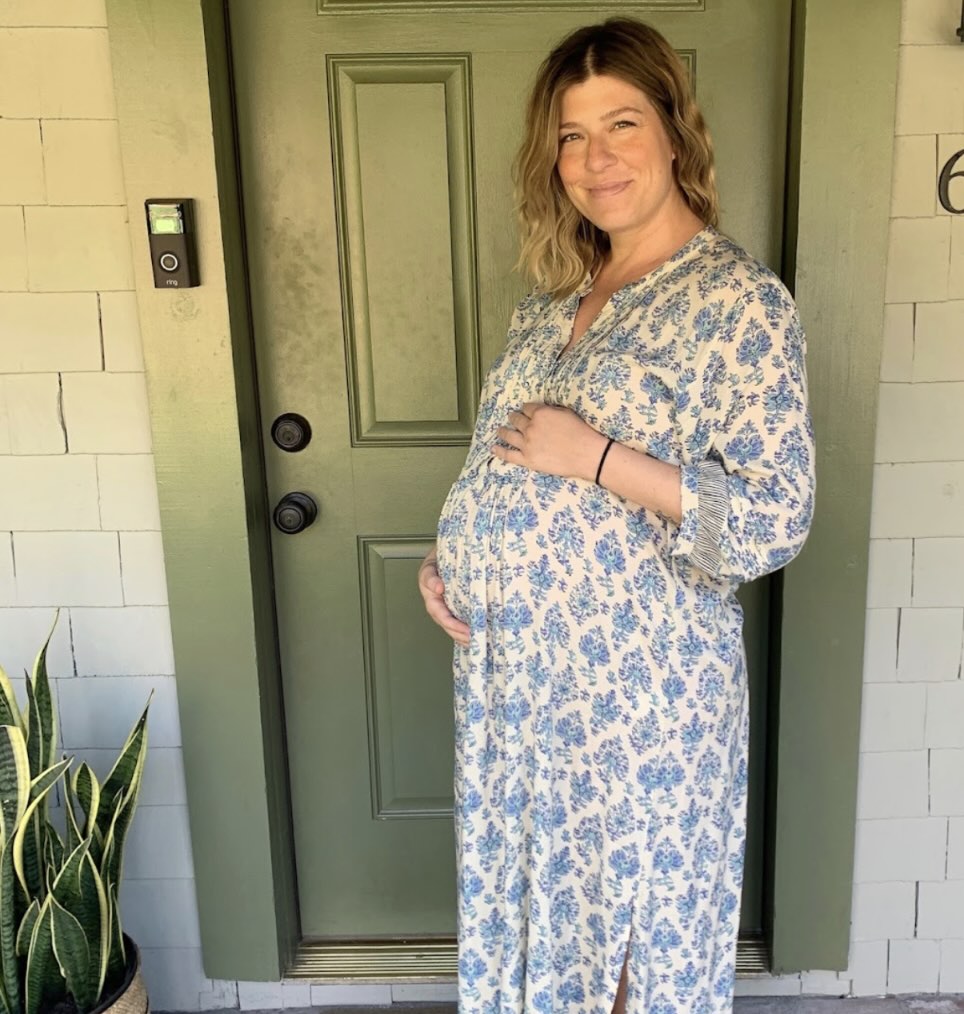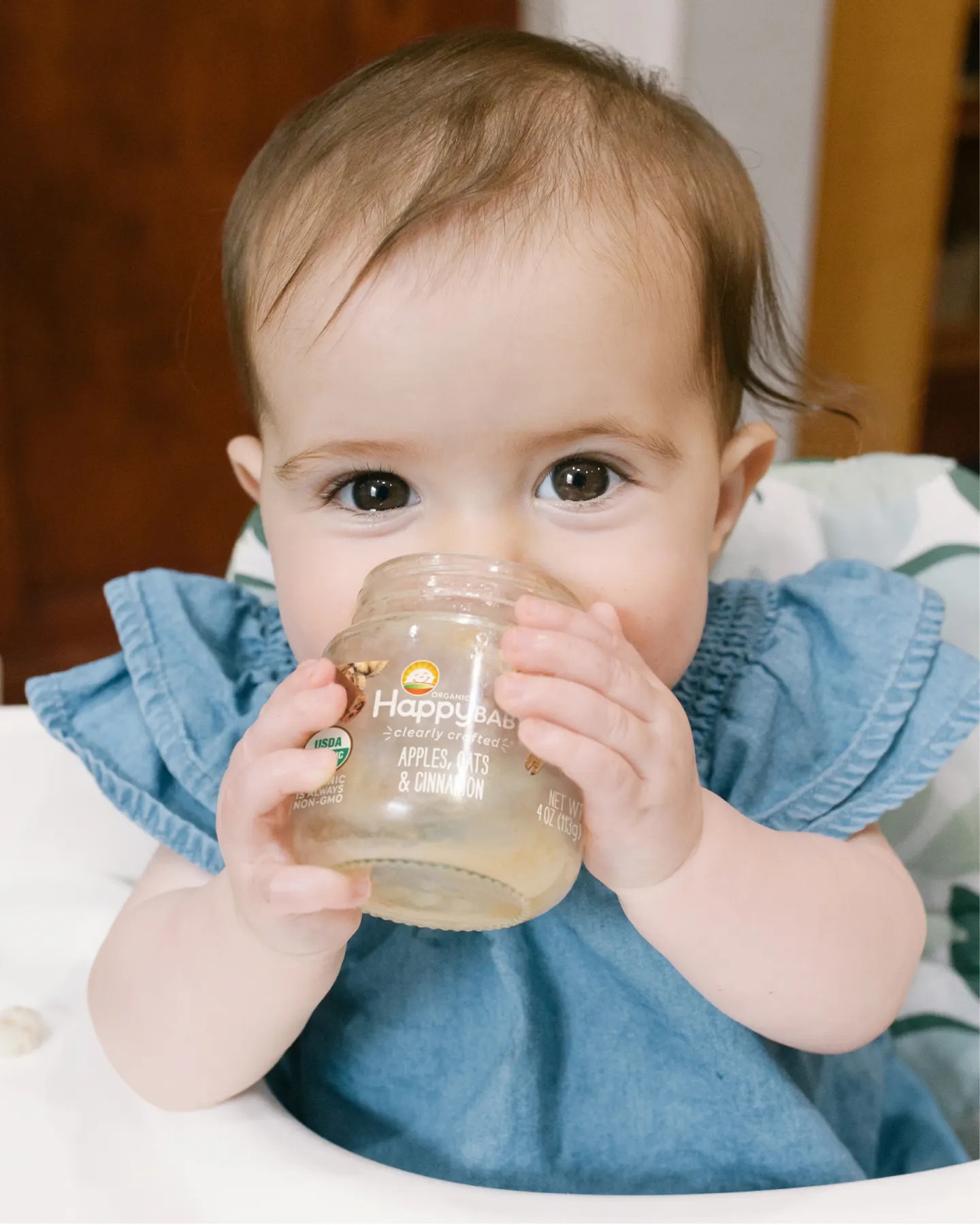Our team is dedicated to finding and telling you more about the web’s best products. If you purchase through our links, we may receive a commission. Our editorial team is independent and only endorses products we believe in.
We like
We don't like
Featured Product
At 9 months, you’ve likely gotten the hang of milk feeds and are well into the world of solids. Your baby might be transitioning away from purées or happily self-feeding banana spears in true baby-led weaning (BLW) fashion. Either way, feeding a baby at this stage is a big milestone—congratulations!
Between naps, playtime, and mommy-and-me classes, managing your baby’s feeding schedule can feel like a full-time job. And if you ever catch yourself wondering whether you’re doing it “right” or if what you’re experiencing is normal, you’re definitely not alone. To help, we’re sharing a sample daily meal plan to give you a sense of what a day on the menu could look like for your 9-month-old baby.
But First, a Quick Word on Milk Feeds
Before we dive into their feeding menu, it’s important to remember that at 9 months old, breast milk and/or infant formula should still be your baby’s primary source of nutrition. Even though your baby is eating solid foods, most of their calories and essential nutrients should still come from milk feeds. Breast milk and formula are specifically designed to provide the perfect balance of fats, proteins, vitamins, and minerals needed to support your baby’s rapid growth and brain development.
While solid foods are still providing nutrition, it’s also a time for exploration, skill-building, and expanding tastes and textures—not replacing milk feeds altogether. That’s why I recommend Happy Baby Organic Stage 2 Infant Formula, formulated for babies 6+ months. It features age-appropriate levels of key nutrients to meet your baby' s evolving needs. Just like breast milk naturally adapts to meet your baby’s changing needs, your formula should, too—and this one does exactly that.

Sample Meal Plan for a 9 month Old Baby
Every baby is different, and so is every family's routine. This is just one example of what a day of feeding might look like at this age. Your baby’s appetite, preferences, and schedule may vary day to day, and that’s completely normal. Always follow your baby’s cues, do what works best for your family, and consult your pediatrician for personalized guidance and support.
Sample Meal Plan
6:00 AM: Wake up + milk feed
7:00 AM: Breakfast ideas
- Oatmeal with thinned peanut butter
- Scrambled egg with lightly toasted bread strips
- Whole milk Greek yogurt with applesauce
- Iron-fortified infant cereal with pureed mango
8:00 AM: Morning nap
9:00 AM: Milk feed
12:00 PM: Milk feed
12:30 PM: Lunch ideas
- Shredded chicken, rice, and mashed avocado
- Salmon flakes, quinoa, steamed broccoli
- Shredded cheese, mashed potatoes, roasted butternut squash spears
- Low sodium cottage cheese with pureed pears
1:30 PM: Afternoon nap
3:30 PM: Milk feed
5:00 PM: Dinner ideas
- Meatballs, roasted zucchini, farro
- Whole wheat pasta, low-sodium tomato sauce, lightly mashed peas
- Omelette strip, roasted carrot sticks, savory muffin
- Whole milk Greek yogurt, chia seeds, pureed blueberry compote
6:30 PM: Milk feed + bedtime
How Much Should a 9 Month-Old Baby Eat?
At around 9 months, most babies are eating two or three solid meals a day, alongside their regular milk feeds. When it comes to how much they should eat at each meal, there’s no one-size-fits-all answer—quantity varies from baby to baby.
Babies are great at regulating their appetite (intuitive eaters!) and they know when to stop or continue eating. Your role is to offer nutritious foods and let your baby decide how much to eat.
Look for hunger cues, such as:
- Smacking or licking their lips
- Using sign language or gestures for “more”
- Reaching for food or bringing a spoon to their mouth
When they’re full, babies will typically:
- Stop self-feeding
- Turn their head away from the spoon if being fed
- Appear disinterested, distracted, or tired in their high chair
TL;DR What Should A 9-Month-Old Baby Eat In A Day?
At 9 months, babies are usually eating 2 to 3 solid meals a day while continuing regular milk feeds. Solids at this stage are about exploration and skill-building, not replacing breast milk or formula just yet. A balanced day might include oatmeal or yogurt at breakfast, soft proteins and veggies at lunch, and easy-to-eat grains, eggs, or pasta at dinner. Let your baby lead, but offer nutrient-dense, age-appropriate foods.
Frequently Asked Questions
What solids can I give my 9-month-old baby?
Safe, soft, and easy-to-grasp foods are best. Examples include steamed veggies, small pieces of soft fruit, scrambled eggs, yogurt, and iron-rich grains like oatmeal or quinoa.
How many times a day should my 9-month-old eat solids?
Most 9-month-olds eat about 2 to 3 solid meals daily, plus regular breast milk or formula feeds.
Can my baby eat finger foods?
Yes! Many babies can self-feed soft finger foods at this stage. Try things like banana spears, roasted sweet potato wedges, or toast strips with avocado.
Is yogurt okay for a 9-month-old?
Yes, whole milk yogurt is safe and nutritious. Avoid low-fat or added-sugar varieties, and stick to plain or ones mixed with pureed fruit.
What if my baby isn’t eating much?
That’s normal! Some days are more food-focused than others. Continue offering a variety of textures and flavors, and let your baby guide how much they want to eat. Talk to your pediatrician if you're ever concerned.
Why You Should Trust Us
At The Quality Edit, we prioritize expert-backed, parent-tested information. This article was written by Dahlia Rimmon, MS, RDN, a licensed pediatric dietitian and mom who specializes in infant and toddler nutrition. Every recommendation is based on real-world experience, clinical guidelines, and a whole lot of messy mealtimes.



















